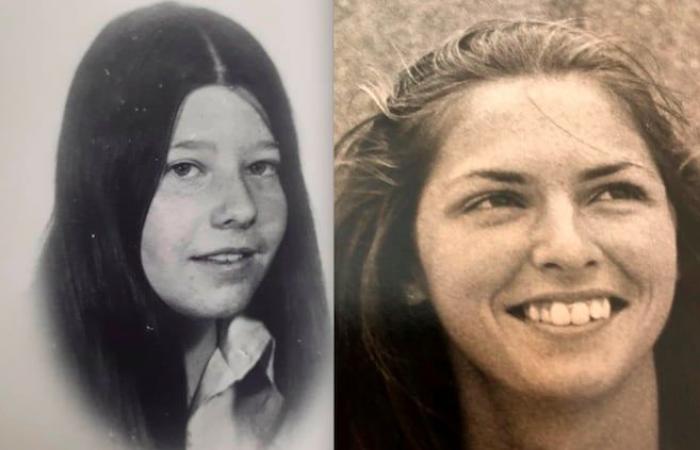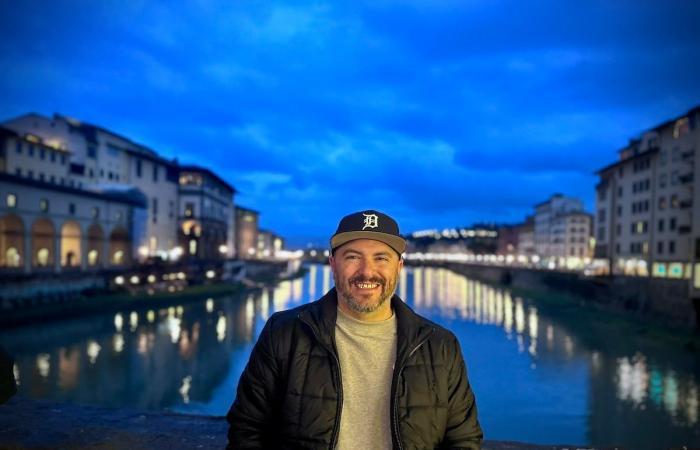The story caused a lot of ink to be spilled at the time, almost everywhere in Quebec. THE Progress-Sunday evoking it in particular in its edition of August 2, 1976, with the headline: “Where are the campers from Montreal?”
But despite the media attention paid to the disappearance — then the death — of the two women, and the few avenues explored by investigators, the case remained a mystery.
The series, which also stops on the North Shore, is carried by the criminologist Mélina Beaulieu, as well as by Victoria Charlton. (Road trip fatal)
This is what motivated the creation of this new documentary series, Road trip fatalarriving Thursday on the illico+ platform. And that’s what pushed the film crew, made up among others of “the queen of true crime» Victoria Charlton and criminologist Mélina Beaulieu, to repeat the same journey as Jocelyne Beaudoin and Renée Lessard in 1976.
Failing to leave on the go like the two victims, and to be expected back at the opening ceremony of the Montreal Olympic Games, the duo took the same route, on the same dates. From Montreal to Quebec, then to Saguenay-Lac-Saint-Jean and the North Shore.
All this in parallel with interviews with relatives of the victims, including Jocelyne’s sister-in-law, Francine Vachon.
“I liked this dual way of telling stories. To have these testimonial interviews that I was doing. And to be able to improve them in parallel with the work of the girls on the ground, who made the journey again. We really wanted to repeat a journey as similar as possible, to relive it,” says director Félix Trépanier.
Director Félix Trépanier loves to delve into the past, through his documentary projects. (Francis Bibeau)
Passionate about these projects which allow us to revisit the past, in the “real places” where it was shaped, the latter speaks of a thin line on which to find one’s balance, between the production of an entertaining series and a work sensitive to the still raw pain of loved ones.
One of his main motivations, moreover, was to provide some answers to families.
“It’s a very, very, very thin line,” says the director. I always have it in mind. People help us. This lady, Francine, who takes the time to welcome us into her home, who spends hours with us, I have immense respect for her. I honestly hope with a project like this I can have at least one or two clues to help. They haven’t had any news for years, and no news is horrible.”

The series has been available since Thursday on the illico+ platform. (Road trip fatal)
“I was in communication with her [Francine] off set too, if we learned something I called him. For me it’s super important, because yes it’s a series to entertain, but it’s not fiction, it’s real life. These two girls were really murdered, and these families really have no answers,” added Félix Trépanier.
Without pretending to be investigators, the members of the team were actually able to explore some new avenues during the project, including that of a suspicious trucker, in the first episode.
And they now hope that the broadcast of the series will put the case back in the spotlight, and perhaps encourage some people to speak out, almost 50 years after the fact.
«Ma job it’s because we’re talking about it. If anyone can think of a phrase they heard back then that can help the investigators, if we get one more clue… that would be my ultimate wish. If someone has had something on their conscience for 45 years, looking at this, they might say it.”
Since Jocelyne Beaudoin and Renée Lessard made more than one stopover in Saguenay-Lac-Saint-Jean during their trip, a good part of the filming took place in the region.
This is where, for example, some of their postcards were sent, from which it was possible to retrace their journey. “In 1976, there was no GPS on the telephone, it was with these postcards that they communicated, those were our clues,” argues the director.
As the series reminds us, the bodies of the two women were indeed found — that of Jocelyne Beaudoin in October 1976 in a wooded area on the South Shore of Montreal and that of Renée Lessard, who would not be identified until 40 years later, in April 1977 in the La Vérendrye Wildlife Reserve. But the cause of their death was never known. And no one has been arrested in connection with this case.
Hence this sincere desire, for Félix Trépanier, to bring a little hope to families. “I can’t wait to get the call from Francine. I wanted her to experience it with her family. But I know she’ll call me when she’s ready.”








